Teachers are the "soft pillars" of the education system.
Teachers are the ones who directly shape the personality, knowledge and values of generations of students. However, in reality, the Vietnamese teaching staff is facing many challenges such as: low salaries and allowances, while the workload is increasingly heavy; pressure from achievements, records, competition and social reactions; unstable working environment, especially in remote areas...
According to a report by the Ministry of Education and Training (MOET), as of April 2024, the country still lacks 113,491 teachers at all levels of preschool and general education, of which the most serious shortage is preschool and primary school teachers in mountainous and disadvantaged areas. On the contrary, in big cities, many highly qualified teachers leave the profession or move to the private sector because their income is not enough to cover their living expenses. Also according to the MOET , about 88% of teachers nationwide have lower salaries than civil servants in other sectors such as health, construction, transportation or finance.
Therefore, at many universities, the admission scores for pedagogical majors have dropped very low. Although there has been an improvement in 2024, the “revival” is still not really strong. A student at Hanoi National University of Education once shared: “I love teaching, but when I look at the income of my predecessors, I am afraid that I will not be able to take care of the future.”
This reality is not only in Vietnam. A 2023 UNESCO report shows that many Asian countries are also lacking quality teachers due to competition in the technology and service labor market. However, what makes the difference is the compensation policy and the working environment. Lessons from countries that value teachers show that in Finland, teaching is considered one of the most prestigious professions. To become a primary school teacher, candidates must have a master's degree and pass the national pedagogical competency exam. Teachers' salaries are at the average level of society, but they enjoy high professional autonomy and absolute respect from society. In Korea, public teachers are considered "lifelong civil servants", with welfare, insurance and a transparent promotion path. The government invests heavily in training and development, helping teachers become "lifelong learners". In Singapore, each teacher is given a personal budget to study, research and attend international conferences every year. This is how Singapore maintains a team of good, dedicated, creative and globally integrated teachers...
The above lessons show that, to have a strong education system, we must start by respecting teachers. Because only when teachers are guaranteed both materially and spiritually, can the teaching profession truly become “the profession of the best” and Vietnamese schools become “a place to inspire knowledge and nurture the personality of modern Vietnamese people”.
The teaching profession needs "real priority" from the right policies.
In recent years, the Party and the State have issued many important policies to improve the status and working conditions of teachers such as: Resolution 29-NQ/TW (2013) on fundamental and comprehensive innovation in education, clearly defining: "Developing the teaching staff is a key task, top priority"; Decree 71/2020/ND-CP and guiding documents have improved preferential allowances, especially for teachers working in remote, border and island areas. From 2023, teachers' salaries will be adjusted according to the new salary table of Resolution 27-NQ/TW, helping to increase average income by about 25-30%. Many localities such as Hanoi, Ho Chi Minh City, Da Nang have proactively issued policies to support housing, reward excellent teachers and allowances for innovative teaching initiatives, etc.
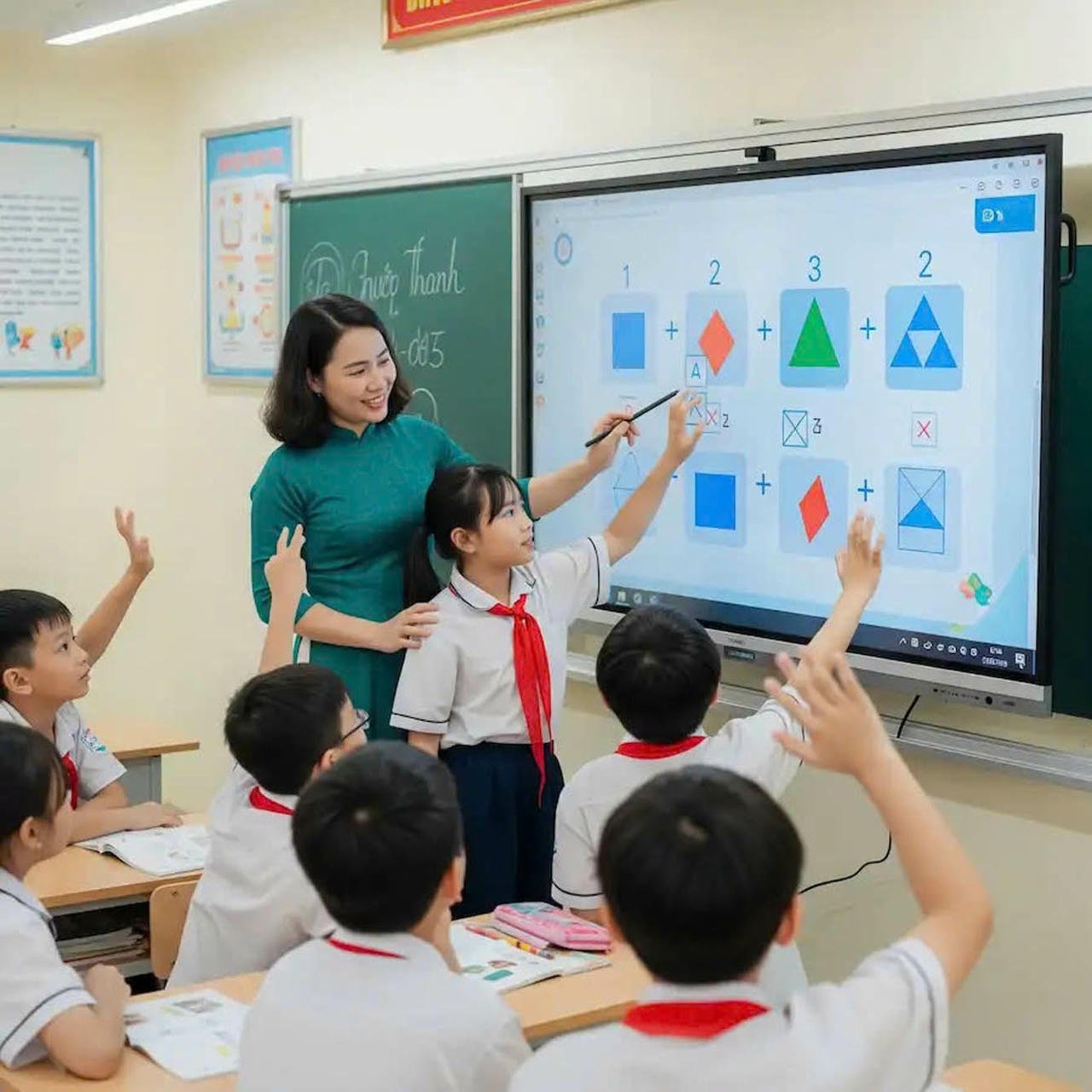
However, to contribute to "keeping the fire" for teachers to light up knowledge for future generations and attract talented people back to the podium, the teaching profession needs more "substantive priority" from the right policies.
In 2025, there will be a series of new policies taking effect such as Circular 05/2025/TT-BGDDT on regulations on working regime for general and pre-university teachers, effective from April 22, 2025; Decree 60/2025/NQ-CP amending and supplementing a number of articles of Decree 116/2020/ND-CP dated September 25, 2020 of the Government regulating policies on tuition and living expenses support for pedagogical students, effective from April 20, 2025; Circular 04/2025/TT-BGDDT dated February 17, 2025 regulating the quality assessment of training programs at all levels of higher education, effective from April 4, 2025...
The Law on Teachers was passed by the 15th National Assembly at the 9th Session in June 2025, consisting of 9 chapters and 42 articles, effective from January 1, 2026, lighting up great hope for teachers across the country. Accordingly, public teachers' salaries are ranked the highest in the administrative career system (Article 23 of the Law on Teachers 2025, salaries and allowances for teachers working at public educational institutions will be ranked at the highest level in the administrative career salary scale system. Along with that, teachers are also entitled to additional vocational allowances and other allowances according to the nature of work and by region, in accordance with the provisions of law); 8 support policies specifically for teachers (Article 24 of the Law on Teachers, a separate support policy system has been designed to ensure the living and working conditions of teachers. Including policies on subsidies according to the nature of work and by region; support for professional training and development; periodic health care and occupational health); Policies to attract and promote highly qualified teachers working in disadvantaged areas (Article 25 of the Law on Teachers clearly stipulates mechanisms to attract and promote highly qualified, talented or specially gifted people, high vocational skills in the education sector. The policy also applies to those who come to work in ethnic minority areas, mountainous areas, border areas, islands, areas with especially difficult socio-economic conditions or teachers who teach and research key fields serving socio-economic development)...
To contribute to increasing teachers' income, according to many experts, the State needs to create a clear mechanism and give more autonomy to schools, instead of just relying on salaries. Along with that is a social housing policy specifically for teachers; reducing administrative burdens and competition records so that teachers have time to focus on teaching; investing heavily in retraining and improving professional standards - especially in the context of digital transformation and international integration... Talking to the media, Associate Professor Dr. Tran Thi Minh Hang - Academy of Educational Management expressed her opinion: "Currently, most schools cannot create more income for teachers because of the mechanism. Only a few non-public schools have support policies to retain teachers. Therefore, rewarding teachers based on labor productivity is an important solution to create more motivation for the profession"...
In reality, to do these things, we cannot only rely on the budget, but also need the cooperation of society. Currently, many businesses, private funds, and international organizations have begun to accompany Vietnamese education through scholarship programs, equipment support, and training in creative teaching skills. And the most important thing is to restore social trust in the teaching profession. When parents, students, and the media all view teachers with respect, sharing, and understanding, that is also a great "spiritual incentive".
In other words, many preferential policies, care and respect for the teaching profession - that is not only the right thing to do, but the right thing to do. Because if a country wants to develop sustainably, it must start with the people who sow the seeds for the future - the teachers.
Source: https://baophapluat.vn/nghe-day-hoc-khong-chi-can-tinh-yeu-ma-con-can-su-bao-dam.html






![[Photo] General Secretary To Lam receives Vice President of Luxshare-ICT Group (China)](https://vphoto.vietnam.vn/thumb/1200x675/vietnam/resource/IMAGE/2025/11/15/1763211137119_a1-bnd-7809-8939-jpg.webp)
![[Photo] Prime Minister Pham Minh Chinh meets with representatives of outstanding teachers](https://vphoto.vietnam.vn/thumb/1200x675/vietnam/resource/IMAGE/2025/11/15/1763215934276_dsc-0578-jpg.webp)




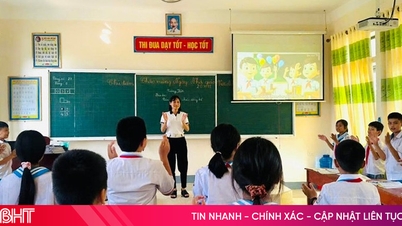

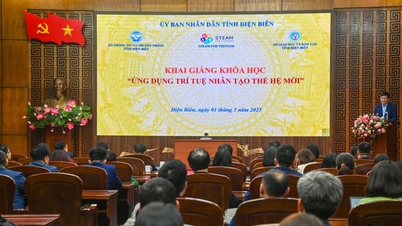
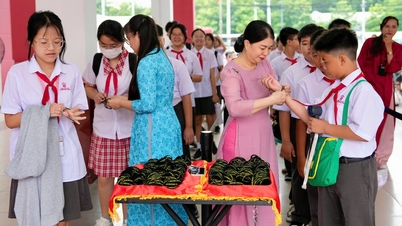











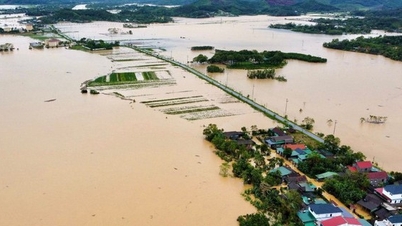






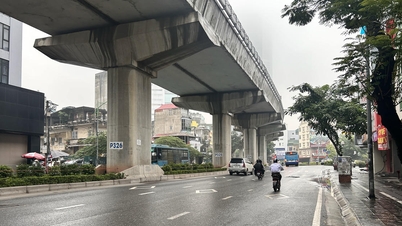








































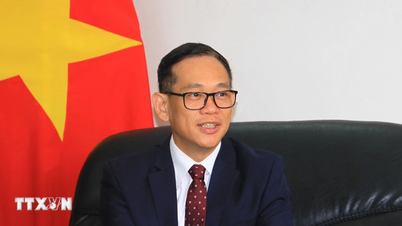














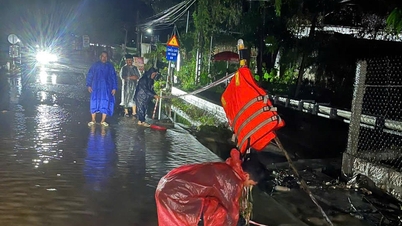

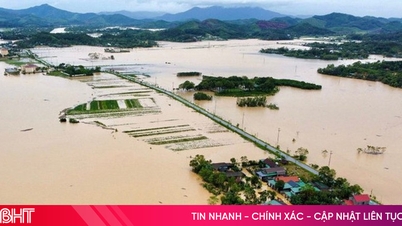













Comment (0)